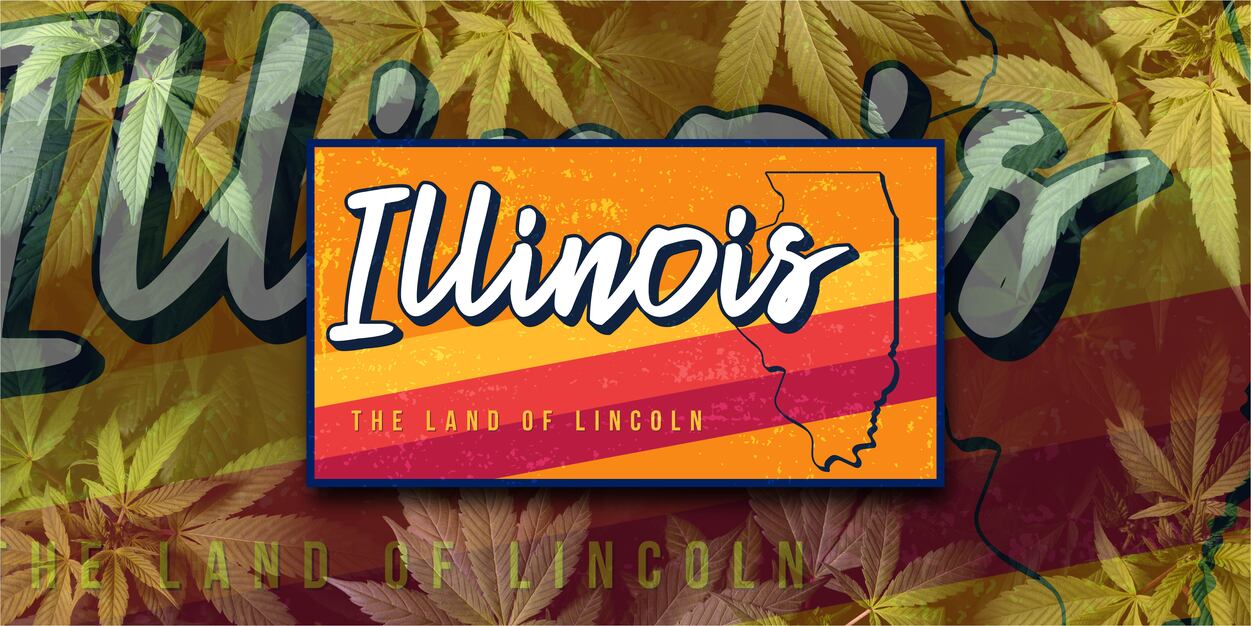Illinois Marijuana Packaging Standards: Compliance, Labeling, and Requirements

There are strict Illinois marijuana packaging standards to maintain safety, transparency, and compliance in the legal cannabis market. These rules cover everything from child-resistant packaging to detailed labeling to protect consumers and prevent misuse.
If you’re a cannabis business owner in the Prairie State, it’s important to be aware of these laws and regulations. Our in-depth guide provides you with everything you need to know!
Regulatory Framework for Cannabis Packaging in Illinois
The Illinois Cannabis Regulation and Tax Act (410 ILCS 705/55-21) establishes the core requirements for packaging standards. Furthermore, the Illinois Administrative Code Title 8, Section 1300.920 provides further details on compliance.
These regulations create a standardized approach to cannabis packaging and labeling, ensuring all products meet state safety requirements.
The framework mandates that all cannabis products be sold in child-resistant packaging to prevent accidental consumption. Additionally, packaging must be tamper-evident, opaque for certain products, and properly labeled with essential information (i.e. potency, ingredients, and health warnings).
Businesses in Illinois must stay updated on these evolving regulations to maintain compliance. Failure to meet Illinois marijuana packaging standards can result in fines, product recalls, or license suspension, making adherence a top priority for cannabis companies.
General Packaging Requirements
All cannabis products sold in Illinois must be packaged in containers that meet the state’s marijuana packaging standards. These regulations ensure products remain safe, fresh, and protected from unintended access.
Key packaging requirements include the following:
- Child-resistant packaging for marijuana products in Illinois – Packaging must be designed to prevent children from accessing it, meeting Consumer Product Safety Commission (CPSC) standards. This applies to all cannabis-infused products, including edibles, concentrates, and flower.
- Odor-proof and light-resistant packaging – Containers must block external light exposure and prevent strong odors from escaping. This helps maintain product potency and freshness while snoring discretion for consumers.
- Secure sealing to prevent contamination and tampering – Packaging must include tamper-evident seals or mechanisms that make it clear if a product has been opened or altered. This protects consumers from potential contamination and ensures product integrity.
- Opaque packaging for certain cannabis products – Some cannabis items (i.e. edibles) must be placed in non-transparent packaging to prevent visibility of the contents, reducing the risk of appeal to children.
- Durable and non-toxic materials – Packaging must be made from safe, high-quality materials that do not degrade or contaminate the product over time.
Meeting these requirements is essential for cannabis businesses to comply with Illinois law, avoid penalties, and maintain consumer trust.
Chicago’s Prominent Role in Illinois’s Cannabis Industry
As the state’s largest city, Chicago plays a pivotal role in Illinois’s cannabis market. As of March 2025, the city is home to 30 licensed cannabis dispensaries, reflecting substantial growth in the industry.
The concentration of dispensaries underscores the importance of strict adherence to Illinois’s marijuana packaging standards. In a competitive and densely populated market like Chicago, compliance with regulations is essential not only for legal operation but also for building consumer trust and ensuring public safety.
Moreover, Chicago’s diverse population and significant tourist activity contribute to a dynamic consumer base with varying preferences and needs. Dispensaries must ensure that their packaging appeals to a broad audience while remaining within the state’s regulatory framework, which prohibits marketing that could attract minors or mislead consumers.
Cannabis-Infused Product Standards
Illinois marijuana packaging standards require cannabis-infused products to meet strict guidelines. These requirements apply to edibles, beverages, tinctures, topicals, and other infused items.
Key regulations include the following:
- Individual packaging at the time of production – Each cannabis-infused product must be individually wrapped or sealed before distribution. This prevents contamination, ensures accurate portioning, and maintains freshness.
- Compliance with the Illinois Food, Drug, and Cosmetic Act – Labels must include all health and safety information, such as ingredient lists, allergen warnings, expiration dates, and clear usage instructions.
- THC content limitations – Each package cannot exceed 100 milligrams of tetrahydrocannabinol (THC), with individual servings capped at 10 milligrams. This ensures controlled dosing and reduces the risk of overconsumption.

Mandatory Labeling Information
Adhering to Illinois cannabis labeling requirements ensures transparency and consumer safety. Every cannabis package must display essential details to inform buyers and comply with state regulations.
Required labeling includes the following:
- Business details – The name and license number of the cultivation center or craft grower responsible for producing the product.
- Unique serial number – Each package must have a traceable serial number for inventory management, product tracking, and recall purposes.
- Key dates – Labels must include the harvest date, testing date, packaging date, and a recommended use-by date to ensure consumers are aware of product freshness.
- Accurate weight information – The total product weight in ounces or grams must be clearly displayed to help consumers understand their purchase.
- Comprehensive cannabinoid breakdown – Labels must list the THC, THCa, CBD, and CBDa content. This ensures compliance with THC and CBD content labeling laws in Illinois and helps consumers make informed choices.
- Health and safety warnings – Packaging must include clear warnings about impairment risks, potential side effects, and legal restrictions on use, such as prohibitions on underage consumption and operating vehicles while impaired.
Prohibited Packaging and Labeling Practices
Illinois enforces strict rules on cannabis packaging to prevent marketing that could appeal to minors. Businesses must avoid prohibited imagery on Illinois cannabis packaging to remain compliant.
Restricted packaging elements include the following:
- Cartoon characters, toys, or child-friendly branding – Any imagery or themes that could attract children are strictly banned. This includes bright, playful designs resembling candy or snack packaging.
- Misleading product claims – Labels cannot suggest false or exaggerated effects, such as guaranteed medical benefits or unverified therapeutic claims. All descriptions must be factual and compliant with state regulations.
- Official state symbols – Packaging cannot feature state flags, seals, or other government symbols that could imply official endorsement or approval.
Violating these rules can result in penalties, product recalls, or license suspension. Cannabis businesses must ensure their packaging and labeling remain professional, transparent, and compliant with Illinois law.
Additional Compliant Considerations
In addition to the core packaging and labeling requirements, businesses must also provide additional disclosures to ensure transparency and safety:
- Extraction methods and solvents – Cannabis concentrates must clearly state the extraction methods used, including any solvents (i.e. butane or ethanol) involved in the process.
- Specific warnings for smoking or topical products – Products intended for smoking or topical use must include appropriate safety warnings. These may include risks associated with inhalation or skin irritation, ensuring consumers are fully informed about potential health effects.
Adhering to these Illinois cannabis packaging compliance guidelines is crucial for cannabis businesses. Failure to comply can result in fines, product recalls, or loss of license.
Illinois Cannabis Packaging Enforcement
The Illinois Department of Agriculture is responsible for overseeing cannabis product regulation and enforcing compliance with Illinois marijuana product warning label requirements. This department ensures that all cannabis products meet the state’s strict standards.
Non-compliant products face significant consequences, including fines, product recalls, or other penalties. For businesses operating in Illinois’ legal cannabis market, adherence to these regulations is essential to avoid costly violations and maintain their legal standing. Ensuring compliance also protects consumers and supports the integrity of the state’s cannabis industry.
Final Word
Strict Illinois marijuana packaging standards ensure consumer safety and industry integrity. By complying with these guidelines, businesses contribute to a responsible cannabis market while avoiding regulatory pitfalls.
Are you a cannabis business in Illinois and unsure how to develop state-compliant packaging? Custom 420 Supply is here to help! Our team ensures all packaging and labeling meet state guidelines, and we stay up-to-date on all changes made under Illinois’ regulations.
Want to learn more about what we can offer your business? We invite you to reach out through our contact page!
Frequently Asked Questions (FAQs)
All cannabis packaging must include cultivation details, product weight, THC/CBD content, batch numbers, and health warnings.
Yes, all cannabis packaging must be child-resistant, odor-proof, and tamper-evident to prevent accidental ingestion and ensure product integrity.
Illinois prohibits the use of cartoons, toys, and other imagery that might attract minors, ensuring that cannabis products remain distinctly adult-oriented.
